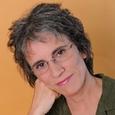Anxiety in women is different from anxiety in men. Overall, women report more anxiety. Women are 60% more likely to be diagnosed with an anxiety disorder. Women also face different stressors, because they have somewhat different life and work challenges.
Womens' biggest stressors are money and work – almost 80% of women worry about money, and about 2/3 worry about work. Over half of all women feel significant stress about family responsibilities, and both personal health and family health.
Women and are more likely than men to report both physical and emotional symptoms. The reason for this difference isn't clear. Researchers have suggested that greater anxiety in women comes from pressures such as these: busier schedules, a tendency to try to “do it all”, greater care-taking responsibilities, hormonal fluctuations, and environmental pressures.
Th 5 most common symptoms of anxiety in women, according to an APA report on gender and stress, are below:
Trouble with Sleep
Anxiety can steal your sleep. For women, the most often reported symptom of anxiety is trouble with sleep. Most women know how important it is to get a good night's sleep, yet anxiety in women often gets in the way. Only about a third of women say they get enough (while 75% of men say they do). Even more – about half of all women – say that in the past month, stress has kept them awake at night.
Emotional distress
The next most common symptom of anxiety in women is emotional distress. For example, anger and irritability are common stress-related complaints. Close to half of women have said they felt irritable or angry in the past month. Other common symptoms include anxious feelings (38%), sad or depressed feelings (44%), and feelings of apprehension or dread.
Physical symptoms
The body responds to anxiety like an over-sensitive smoke alarm. Physical responses that are normal when there's real danger (like jumping out of the way of on oncoming car), occur even when the danger is small or nonexistent (like being a few minutes late for an appointment). The resulting symptoms include rapid heartbeat, high blood pressure, and a faster heartbeat. Anxiety in women often means stress-related headaches (41%), indigestion (32%), muscle tension (24%), and changes in appetite (22%).
Mental symptoms
Anxiety in your head can feel like standing in a crowded room, and trying to keep all the conversations straight. It takes a lot of work! There are so many thoughts pulling in different directions that it's hard to focus on any one thought and actually solve a problem. Mental symptoms of anxiety in women include ruminating, trouble concentrating, watching for signs of future trouble, and imagining unhappy outcomes. In some situations, like social gatherings or exams, anxiety shows up in the form of the mind going blank.
Fatigue and exhaustion
Anxiety in women can feel a bit like treading water in the deep ocean. It's exhausting. More than half of women in stress surveys say they feel fatigued. Fatigue also makes it hard for women to do things that would lessen their stress. This means that women are less likely to do the self-care activities, like exercising and eating well) that would reduce the anxiety.
Relief for Anxiety in Women
Anxiety in women is difficult, but there's some good news too. Women are better than men at reducing anxiety by staying connected with friends, family, and community. Relationships are generally important to women, and having close, caring relationships lowers anxiety. A large majority of women read to reduce anxiety. Other ways to reduce anxiety include:
-Exercise and movement
-Mindfulness
-Relaxation tapes
-Fun activities like dancing
-Writing
If you're struggling with anxiety, and self-care activities aren't enough to bring relief, it's a good idea to find support. Some well-researched methods of anxiety treatment are:
-Cognitive-behavioral therapy
-Neurofeedback
It is possible to stop the cycle of anxiety and exhaustion. If you find yourself caught in this cycle, reach out for help.
Pat LaDouceur, PhD, is author of the forthcoming book, The Remarkable Power of Small Choices: Simple Actions that Shape Your Life. She is a licensed psychotherapist (CA24003), Board Certified Neurofeedback practitioner, author, speaker, and former Director of Operations at a nonprofit agency. For almost three decades, Pat has taught staff, students, and her private clients to be more confident, focused and connected at work and in meaningful relationships. If you like what you're reading, sign up for her Anxiety-Free News at http://www.LaDouceurMFT.com.

Post new comment
Please Register or Login to post new comment.